Thousands of Israelis, including several nationalist groups, have converged on Jerusalem for the annual flag march to celebrate the capture of East Jerusalem in the 1967 war.
The crowd, draped in thousands of Israeli flags, gathered outside the Old City’s Damascus Gate, chanting slogans that included anti-Arab rhetoric, before making their way through the Muslim Quarter to the Western Wall, a route seen by Palestinians as deeply provocative.
The same march three years ago helped spark an 11-day war in Gaza, with the area seen as the highly-sensitive emotional heart of the Israel-Palestine conflict.
Shai Rosengarten, the deputy director of the group Im Tirtzu, insisted the journey through the Old City was not a provocation, citing the “natural and historical right” of the Jewish people.
In response, Palestinian shops along the route shuttered their doors, while a heavy police presence of 3,000 officers kept watch.
By the end of the day, police reported 18 arrests, including five for attacks on journalists.
Among those assaulted was Haaretz journalist Nir Hasson, with the newspaper describing scenes of hundreds of young men storming through the Muslim Quarter, chanting “Death to Arabs” and assaulting Palestinians.
The march, which is usually fraught with tension, was particularly charged this year due to the ongoing conflict in Gaza that continues to capture the world’s gaze.
During a special Jerusalem Day meeting, Prime Minister Benjamin Netanyahu evoked the historical struggles of Israel, stating that the nation remains “surrounded by enemies” as it was 57 years ago.
“They thought to strangle us, to wipe us off the map. But we are an ancient people, a people of brave fighters. We stood up as one and we defended ourselves,” he said.
“We are also doing so today against Hamas in the south, Hezbollah in the north and Iran in the east.”
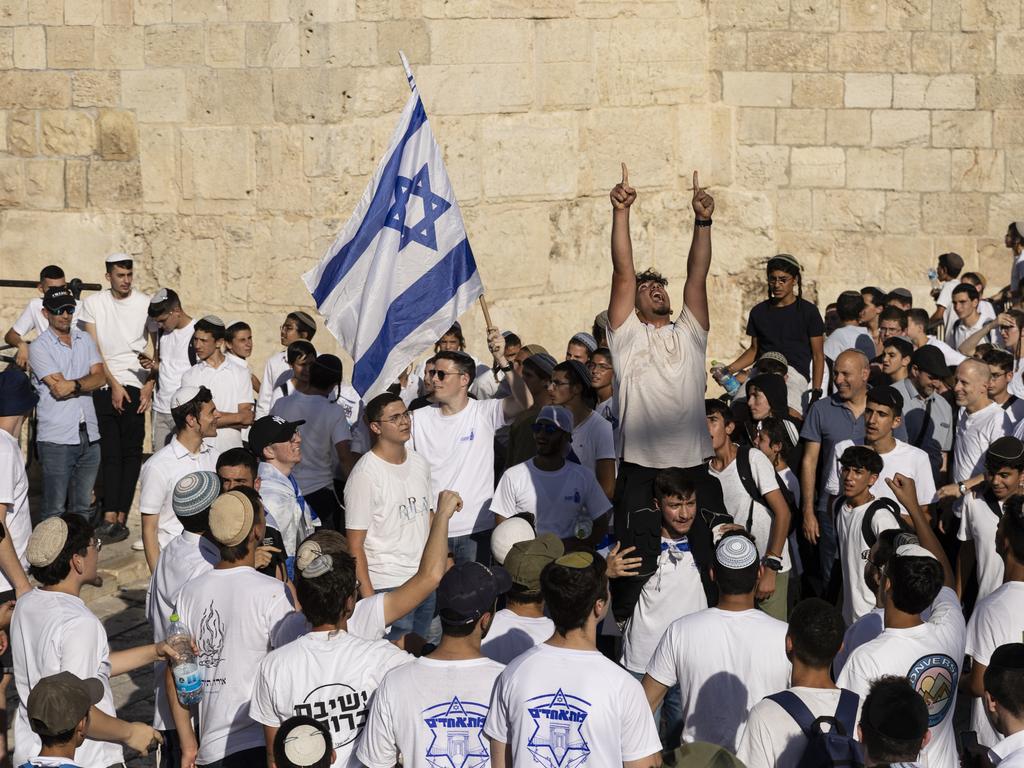
Israelis celebrate during the Jerusalem Day Flag March in the Old City.
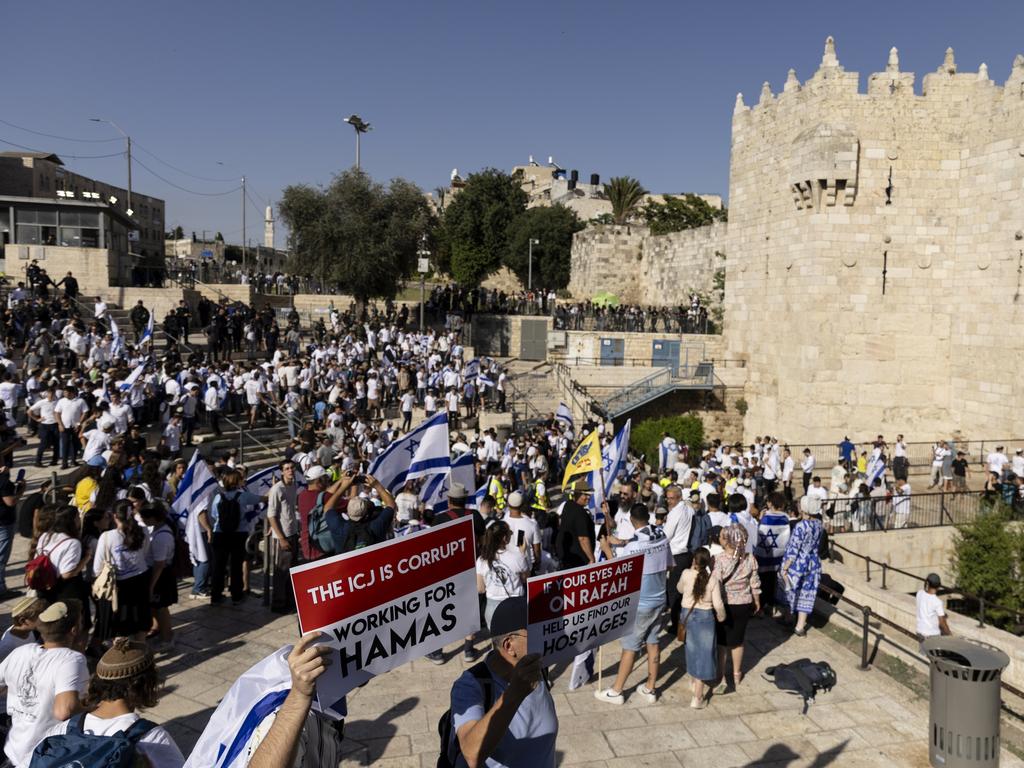
The crowd, draped in thousands of Israeli flags, gathered outside the Old City’s Damascus Gate, chanting slogans that included anti-Arab rhetoric.
Meanwhile terrorist group Hamas’s political leader Ismail Haniyeh, decried the march as a “rampage of settlers” and vowed that his people “will not rest until the occupation ends”.
Jerusalem, home to key Muslim, Jewish, and Christian holy sites, remains at the heart of the longstanding Israeli-Palestinian conflict.
Israel, which occupied East Jerusalem in 1967 and annexed it in 1980, a move not recognised by most countries, claims the entire city as its capital.
Conversely, Palestinian leaders seek East Jerusalem as the capital of a future independent Palestinian state, which currently houses about 350,000 Palestinians and 230,000 Israelis.
The flag march has a history of sparking violence. In 2021, Hamas fired rockets at the city on the same day, leading to an 11-day war in Gaza.
It comes as Israel’s military continues to smash central Gaza with heavy air strikes, as international talks to secure a truce and hostage release deal resumed.
US President Joe Biden has continued to push for a three-phase plan to stop the fighting for six weeks while hostages are exchanged for Palestinian prisoners. In this proposed ceasefire, officials plan to send much-needed aid to civilians still caught in the thick of the fighting.
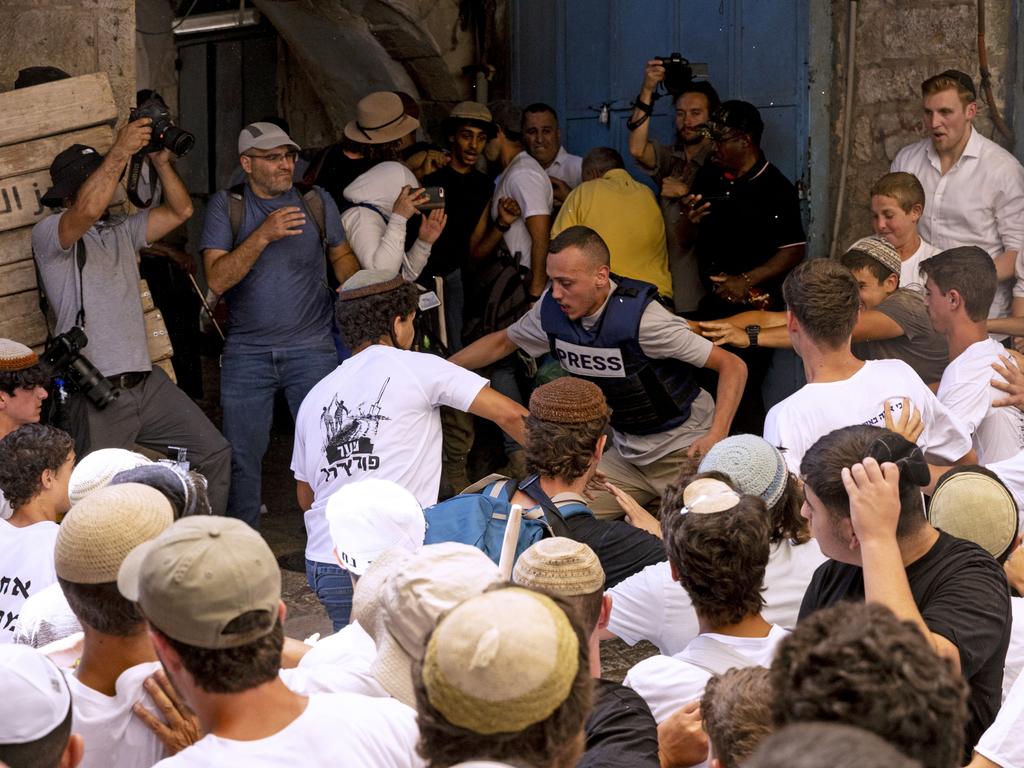
A small group of men attacked members of the press during the Jerusalem Day Flag March.
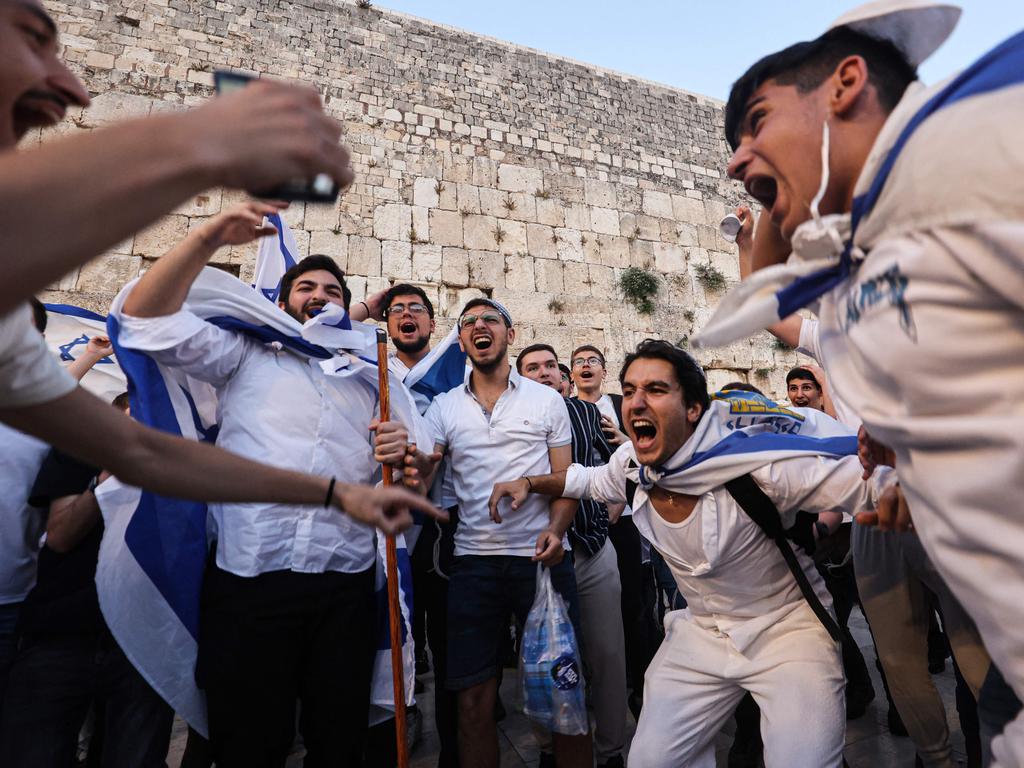
The march is usually a tense affair, but is particularly so this year due to the war in Gaza.
Western powers and Arab states have backed the proposal, but there are fears there may not be a resolution between the warring states.
Israeli officials have flatly rejected Hamas insistence on a permanent truce and full withdrawal from the IDF.
Biden earlier told Qatar’s emir that “Hamas is now the only obstacle to a complete ceasefire”, and “confirmed Israel’s readiness to move forward” with the terms he set out last week.
It came as a senior Hamas official accused Israel of seeking “endless” negotiations and reiterated the group’s position rejecting any deal that excludes a permanent ceasefire.
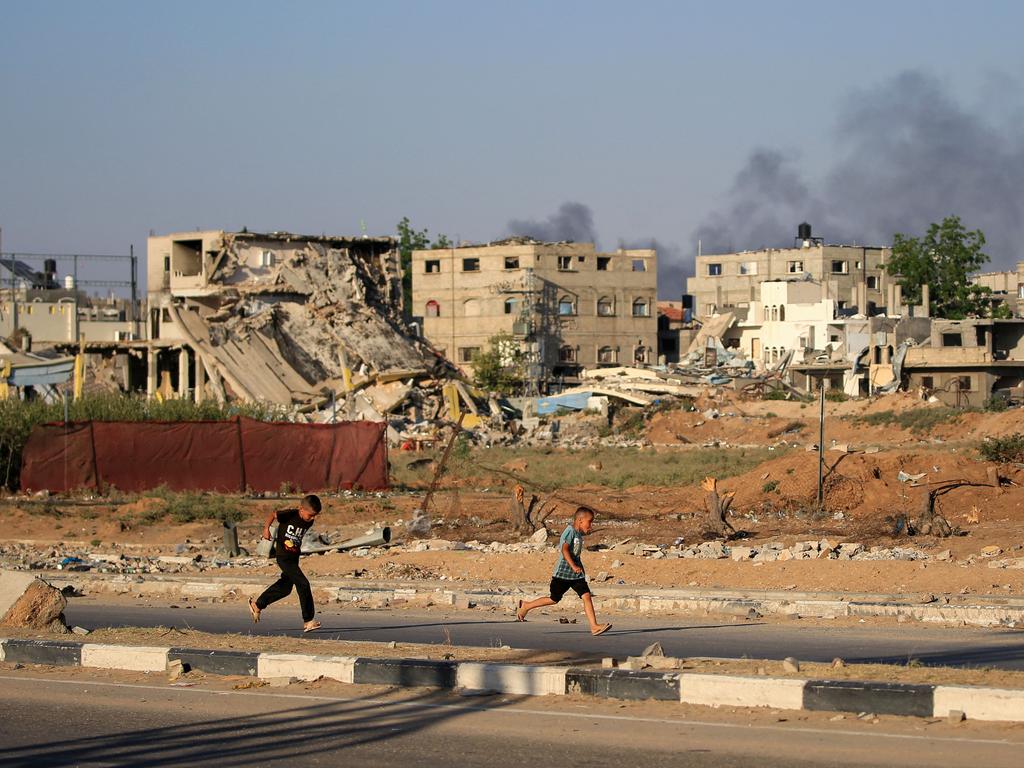
Palestinian boys run as smoke billows during Israeli bombardment east of al-Bureij refugee camp in the central Gaza Strip on June 5, 2024, amid the ongoing conflict between Israel and the Palestinian militant group Hamas. Israel’s military pounded central Gaza with heavy air strikes on June 5 as international talks to secure a truce and hostage release deal resumed. (Photo by Eyad BABA / AFP)
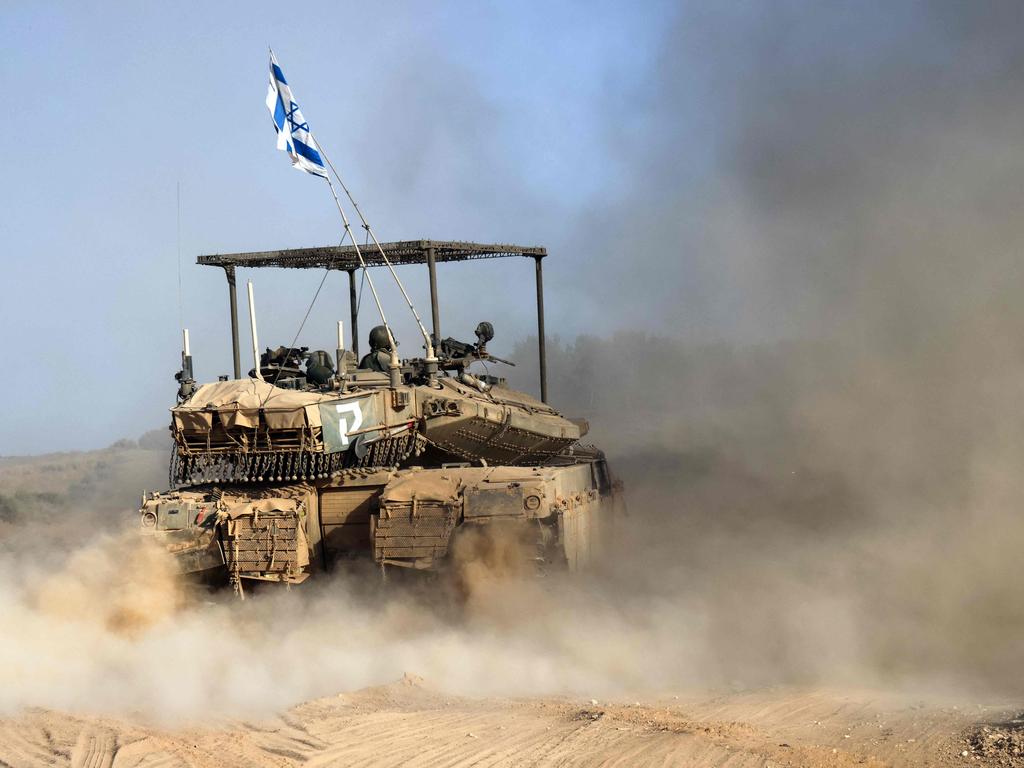
Israeli National Security Adviser Tzachi Hanegbi has said that he expects fighting in the Gaza Strip to last for the remainder of 2024.
Israeli National Security Adviser Tzachi Hanegbi has said that he expects fighting in the Gaza Strip to last for the remainder of 2024.
“The fighting in Gaza will continue for at least another seven months,” he declared in an interview with Israeli media last week.
Eight months into what has become the deadliest Gaza war on record, Israel faces increasing international opposition and cases before two international courts in the Netherlands. Algeria has proposed a UN resolution demanding an immediate ceasefire and the release of all hostages.
Chinese ambassador Fu Cong hopes for a vote this week, with President Xi Jinping expressing his deep concern over Gaza’s situation.
French UN ambassador Nicolas de Riviere called for urgent action to reduce civilian deaths.
“This is a matter of life and death,” he said.
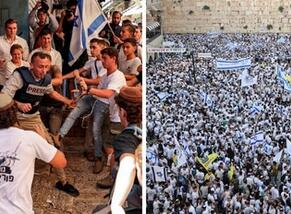
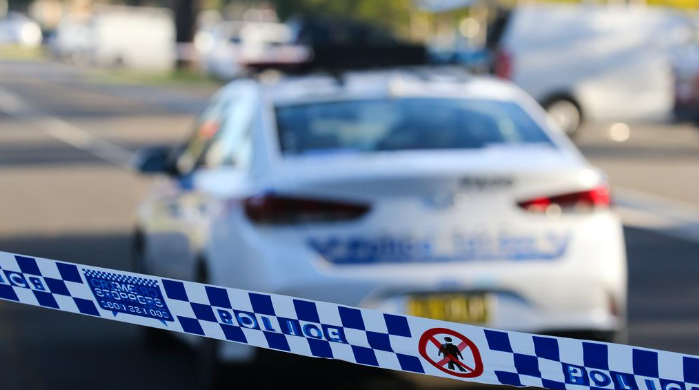
Leave a Reply